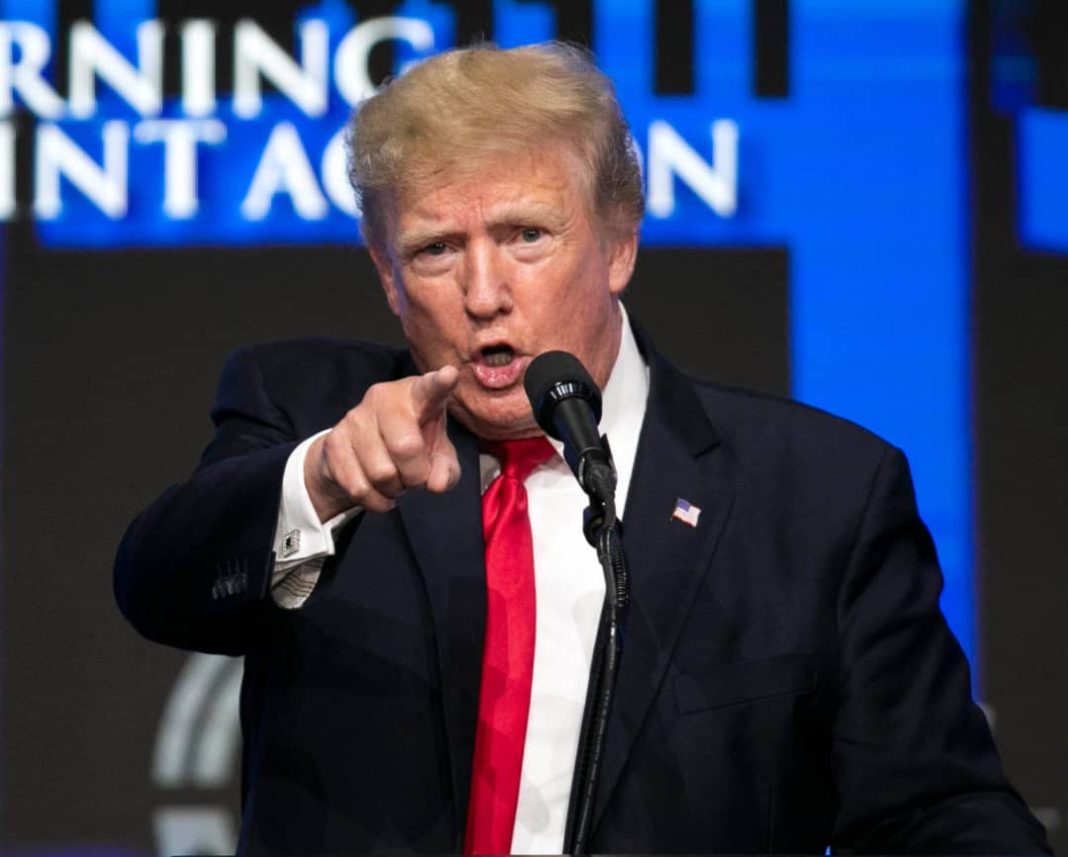BY
Charles Nnaebuka Ph.D
In today’s unpredictable world of global politics, few leaders are as unpredictable as United States President, Donald J. Trump. He is always on the move, stirring up trouble wherever he goes and leaving behind broken rules and confusion. Like a bull in a China Shop, Trump rushes into sensitive international issues with reckless energy, breaking alliances, twisting facts and shaping reality to suit himself. Across issues, be it trade, security or democracy, Trump’s language is elastic. One day he is a nationalist champion, the next, a reluctant globalist. One moment, he warns against foreign entanglements, the next, he threatens invasion. He flirts with isolationism but cannot resist the allure of domination.
Once again, Trump has forced his way into global debate, this time with reckless talk about invading Nigeria to “stop the killing of Christians.” His statement, spread widely by media outlets, shows a dangerous mix of false information, pride and political opportunism. It is an old trick in a new form, using the language of helping others to hide the desire for power and control. Trump’s garrulousness is not just talk but confusion disguised as conviction. Whether he is threatening Iran, insulting NATO allies or now making bold claims about Nigeria, he rushes into sensitive situations and leaves disorder behind. Every reckless statement spreads fear and twists the truth. Unfortunately for fragile regions like West Africa, such words only end up inflaming religious tensions, encourage extremists and weaken ongoing peace efforts.
There is no gainsaying the fact that Nigeria’s internal challenges are complex, far too intricate for Trump’s simplistic worldview. The country faces overlapping crises including and not limited to insecurity in parts of the country, climate-driven conflicts between farmers and herders, banditry and terrorism amid related security challenges. When critically analysed, these are not signs of systemic religious extermination but the fallout of socio-economic inequalities and governance inefficiencies spanning decades. To then flatten these realities into a false narrative of “genocide against Christians” is not only wrong but dangerous. The wrong narrative fuels division, distorts truth and has now laid the groundwork for foreign interference. Trump’s rhetoric, of “fighting genocide in Nigeria” in this instance follows a familiar pattern of weaponisation of misinformation to stir fear and mobilise support among religious and conservative blocs. It should be noted however that this is not a moral mission but a political theatre to project a saviour complex as usual. But Nigeria will not be the prop in another man’s performance.
Interestingly, it is bitterly ironic that Trump would speak of “restoring order” abroad while his own country is mired in dysfunction. As of November 2025, the United States is in the midst of its longest government shutdown in history, which began on October 1st, 2025, after Congress failed to approve funding. As it stands, over 670,000 federal employees have been furloughed while 730,000 others work without pay. Also, the Congressional Budget Office estimates losses between US $7 billion and US $14 billion to the American economy. Consequently, critical services are paralyzed, air-traffic controllers and TSA agents are unpaid, airports are facing staff shortages and millions relying on food assistance face uncertainty. So here is a US government that cannot fund its own operations, pay its workers or maintain basic functionality thus, has no moral or political standing to lecture sovereign nations about order, governance or justice. Trump’s threat about fixing Nigeria rings hollow when the United States itself is in administrative paralysis.
But let it be known that Nigeria is not a frontier waiting for a Western saviour. It is a sovereign republic of over 200 million people that is diverse, resilient and capable of addressing its own internal issues. The country’s complexities demand engagement, not intrusion, partnership, not paternalism. It is also on this note that China, one of Nigeria’s strategic partners has called on the United States to “mind its own business”, a sentiment likely to be echoed by other nations weary of America’s interventionist impulses. The world is no longer willing to accept the myth of moral superiority from a power that struggles to govern itself. Africa has long suffered from the conceit of outsiders who claim to understand her better than she understands herself. From “civilizing missions” to “humanitarian interventions,” the pattern repeats in the same manner of moral pretext concealing power politics. Trump’s threats fall squarely in that lineage.
Nigeria and indeed all of Africa must remain vigilant. The continent cannot afford a return to the era when Western powers dictated the terms of sovereignty. Global partners must speak with one voice that no nation, however powerful, has the right to invade another on the basis of manipulated narratives. The message is clear: Nigeria will not be invaded under the banner of falsehood. We will not be rescued by those who cannot rescue themselves.
The bull may rampage, but when the dust settles, history will remember not his noise, but the nations that stood firm in the face of it.

